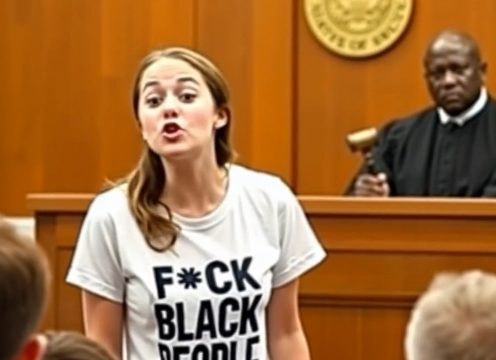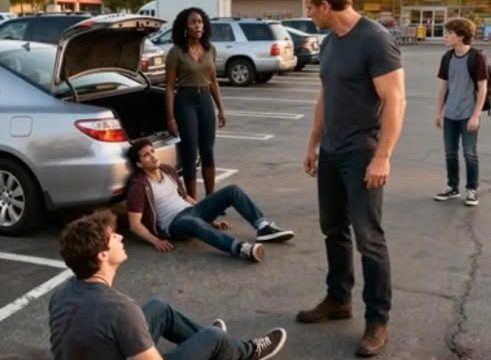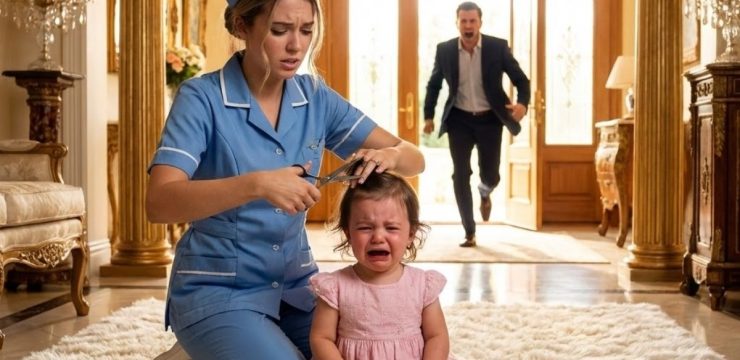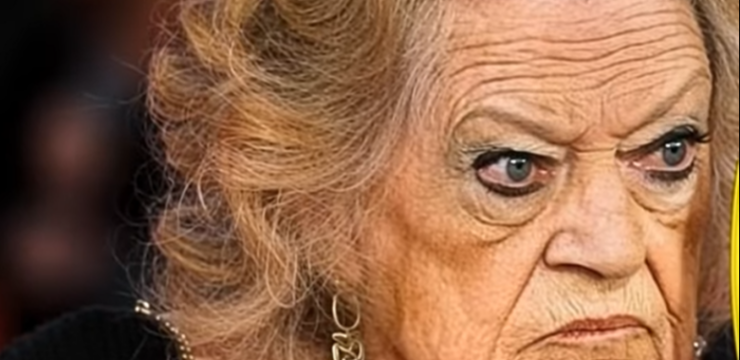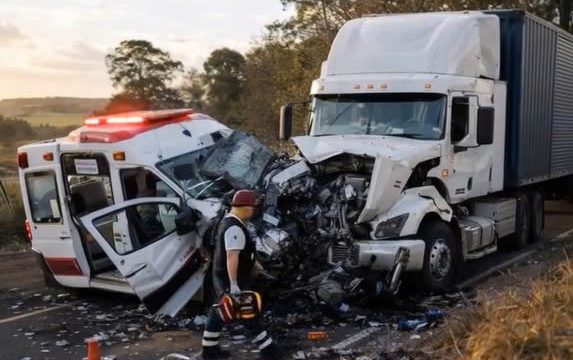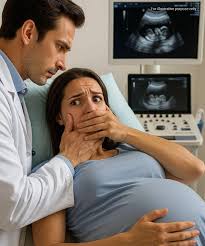When I was seventeen, my life completely changed with three simple words: “I’m pregnant.” That truth shattered everything I knew and trusted. My home, my father’s approval, and any sense of security vanished the moment I spoke those words. My father wasn’t a yelling type, nor did he lash out. Instead, he lived with precision and control, much like the auto garages he managed—neat, rigid, emotionless. His affection always came with unspoken expectations and conditions I didn’t fully understand until they were broken.
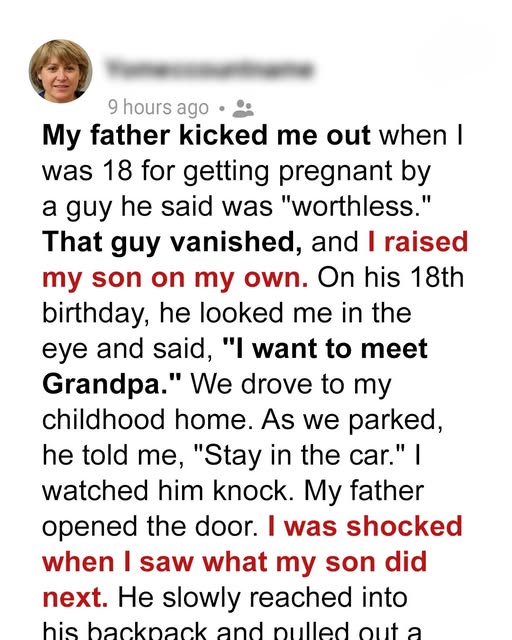
I knew that telling him I was pregnant would cause a rupture between us, but I couldn’t hide it. I looked him in the eye and said, “Dad… I’m pregnant.” He stared at me, silent, then stood up, walked over to the front door, opened it, and said in a flat voice, “Then go. Do it on your own.” And just like that, I was no longer his daughter—I was on my own, with a baby on the way and no place to go. The father of my child disappeared within two weeks. I was left alone, scraping by in a crumbling studio apartment that had more cockroaches than working light fixtures. I worked two jobs—stocking shelves during the day and cleaning offices at night—surviving on little more than ramen noodles, hope, and whispered prayers. I gave birth without a single loved one in the waiting room. There were no balloons, no excited grandparents, no cards or flowers. Just me and my newborn son. I named him Liam. He became the reason I got up every morning. Every long shift, every bill I struggled to pay, every tear I cried quietly at night—it was all for him.
By the time he turned fifteen, Liam had found a part-time job at a local garage. By seventeen, customers were specifically requesting him. He was focused, responsible, and everything I had hoped he would be when I held him for the first time in that lonely hospital room. So, on his eighteenth birthday, when I asked him what he wanted, I expected something simple—maybe a nice dinner or a new tool for his growing collection. But he surprised me. “I want to meet Grandpa,” he said. My heart stopped.
The man who threw me out without a backward glance? The man who had never once tried to reach out? I stared at Liam, unsure, and he met my gaze with calm determination. “I don’t want revenge,” he said. “I just need to look him in the eye.” So I drove him. My hands gripped the steering wheel tight as we pulled into the same old driveway I hadn’t seen in nearly two decades. The porchlight still made its soft humming sound. When the door opened, my father looked confused at first.
Then he saw Liam’s face—and the resemblance was undeniable. Liam handed him a small box. “I thought we could share a birthday,” he said. Inside was a single slice of cake. My son looked at the man who had abandoned us and said, “I forgive you. For what you did to my mom. And for what you didn’t do for me.” My father said nothing. That stone-faced look I remembered so well didn’t change. But Liam wasn’t done. “Next time I knock on this door,” he said, “it won’t be with cake. I’m opening my own garage. And I will outwork you. Not because I hate you, but because you gave us no other choice.” Then he turned and walked back to the car. I couldn’t speak.
My eyes welled up, and my throat tightened. My little boy, the one I’d raised through poverty and pain, had grown into a man who carried more grace than I ever thought possible. As we drove away, he said softly, “I forgave him, Mom. Maybe it’s time you did too.” And that’s when it hit me—we didn’t just survive. We built something stronger. We weren’t broken by what happened. We became unbreakable. That house I left at seventeen? It didn’t define us. What did define us was every sacrifice, every tear, every time we pushed forward when we wanted to quit. Liam’s visit wasn’t about reopening wounds—it was about healing them. And maybe now, it’s my turn to let go, too.
